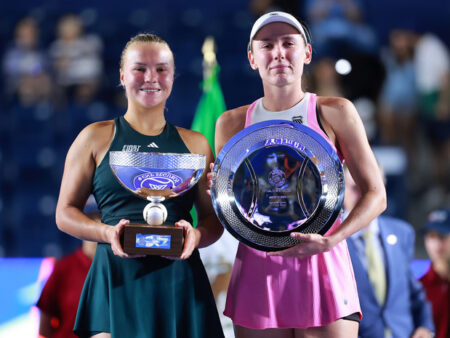Anthony Crolla, a name synonymous with grit and glory in British boxing, has issued a sobering assessment of the sport`s landscape within the UK. The former world lightweight champion, having transitioned from headlining Manchester Arena to fostering new talent in his Oldham gym, perceives a profound shift – a “major crisis” that threatens the very foundations of the sweet science on British soil.
The Fading Roar of the Small Halls
For decades, the lifeblood of British boxing flowed through its small-hall shows. These intimate venues were crucibles where raw talent was forged, prospects honed their craft, and local heroes emerged, often fighting for little more than pride and opportunity. Crolla, whose career journey saw him rise from these very stages, laments their current state.
“For me, British boxing is in a major crisis. The small hall shows have been absolutely murdered.”
This isn`t merely nostalgic sentiment; it points to a tangible decline in the ecosystem crucial for fighter development. A vibrant domestic circuit provides regular competition, allowing boxers to build records, gain experience, and attract a following before stepping onto bigger stages. When these opportunities diminish, the pipeline of future champions inevitably thins.
The Broadcasting Blackout and Consolidating Power
Adding to the pressure is the changing media landscape. Once, multiple broadcasters offered platforms for professional boxing, ensuring a steady stream of domestic fight nights. Now, with major players like Sky Sports and TNT Sports significantly reducing their boxing output, the sport has consolidated onto fewer platforms, notably DAZN. Crolla notes the stark difference:
“The amount of UK shows we’re seeing – they’ve been cut in half. It’s probably less. We used to get a few shows every month on a platform. Nearly everything’s on DAZN.”
While DAZN provides a home for significant events, this concentration means fewer “dates” – fewer evenings dedicated to boxing, fewer chances for fighters to compete, and fewer spots for promoters to stage events. This bottleneck forces many promising fighters into a holding pattern, struggling to secure the ring time essential for their progression.
The Allure of the Gulf: A Double-Edged Sword
Perhaps the most prominent, and ironically grand, contributor to this domestic struggle is the ascendance of lucrative overseas events, particularly those funded by Saudi Arabia. These mega-cards offer unprecedented purses and global exposure, drawing the biggest names and, crucially, many high-calibre fights that would, in a different era, headline major UK shows.
Crolla`s observation highlights this paradox: on one hand, these events deliver spectacular match-ups. On the other, they cannibalize potential domestic main events. Imagine five compelling contests that could fill arenas across the UK – instead, they become supporting acts for one colossal event thousands of miles away. This isn`t just about lost revenue for local promoters; it`s about a diminished sense of local narrative and opportunity.
The irony is palpable: the very spectacle that captures global attention might be quietly eroding the grassroots that feed its future.
The Unsung Heroes: Small Promoters on the Ropes
In this challenging environment, the dedication of independent promoters becomes even more critical – and more precarious. Figures like Black Flash, Steve Wood, and Kevin Maree operate on shoestring budgets, often relying solely on ticket sales and local sponsorships. Their motivation isn`t grand profit margins; it`s a genuine commitment to the sport and its athletes.
“They’re putting shows on as much as they can to get the lads out but it’s hard. Those lads have to sell tickets and that’s the business. A lot of the time the promoter doesn’t make anything. That’s just the truth. They’re relying on sponsors and stuff like, but they’re doing it to get the lads out.”
Their struggle underscores the fragility of the domestic scene. When promoters barely break even, the incentive to continue dwindles, further reducing the opportunities for emerging fighters to gain vital experience and exposure.
What Lies Ahead for British Boxing?
Anthony Crolla’s warning isn`t a doomsaying prophecy but a call for introspection. British boxing has a rich history of producing world-class talent, fueled by a robust domestic circuit and passionate fan base. The current crisis, born from a confluence of shifting media landscapes, global financial magnetism, and local economic pressures, demands attention.
The question remains: How will British boxing adapt? Can the allure of mega-events coexist with a thriving domestic scene, or will the foundations continue to crumble under the weight of an increasingly top-heavy sport? The answer will define the future of the sport for generations of aspiring British fighters.










